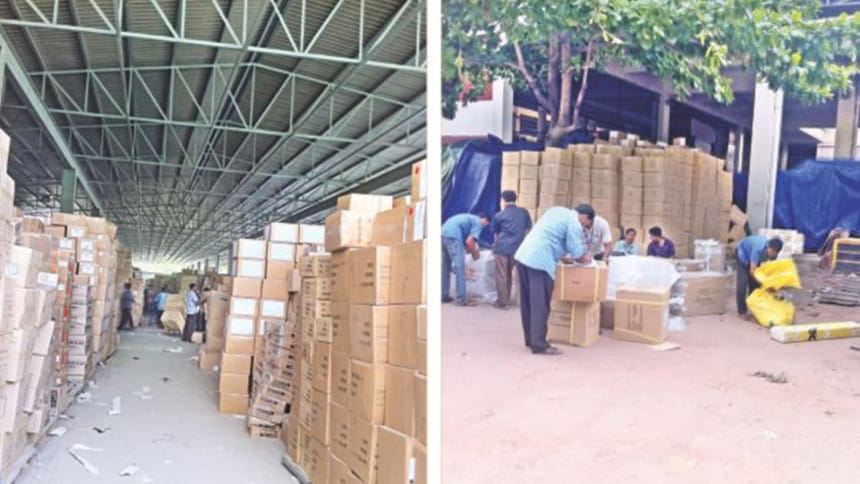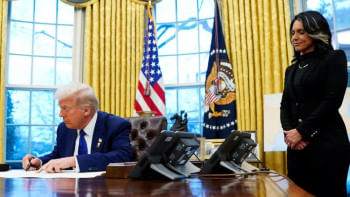Paying the price of the ban

It is understandable that the Bangladesh Garments' Manufacturers Association (BGMEA) is up in arms with regards to the impending ban on air cargo shipped from Bangladesh by the United Kingdom (UK) should we fail to improve security measures at Hazrat Shahjalal International Airport (HSIA) by March 31. While we are informed that steps are being taken on our side with regards to procuring Tk. 900 million to purchase modern security screening equipment, training and hiring of technicians and dedicated personnel, all this comes a little too late. That we have not taken lessons from the December 2015 ban by Australia to ship air cargo to that country is all too plain.
The ban has not come out of the blue. The European Union (EU) regulations that were put into effect as of July 1, 2014, states that all air cargo or mail carriers flying to the EU from any third country (ACC3s) must be physically screened to meet EU-approved aviation security. Only those air carriers that comply with ACC3 standards would be allowed to cargo into the EU. These new regulations came into effect due to the presence and detection of two improvised explosive devices that had been shipped as air cargo from airports in the Middle East in 2010, and basically redefined threat level assessments in the EU. So now, all airlines carrying cargo between Bangladesh and the UK, even those getting to the UK through indirect flights, have to be re-screened before reaching Great Britain.
All this is of course bad news for readymade garments (RMG) exporters. With UK being the second largest apparel export destination after Germany in the common market, and a net value of US$3 billion coming from the UK in the last fiscal, a ban now means the rerouting of cargo through Singapore, Hong Kong, Thailand and Dubai. With exporters already reeling with the Australian decision, the latest ban from UK has far reaching consequences. Indeed, if we go by what information has been made available by Agility Emerging Markets Logistics Index 2016, air exports from Bangladesh to the EU are among the top 20 fastest-growing air cargo trade lanes of 'emerging markets'. The air cargo growth rate year-to-year stands at a little above 7 percent and Bangladesh air lifted some 64,000 tonnes of goods to the EU. RMG constitutes 90 percent of our total exports and of that 10 to 15 percent is air-shipped to Europe and the United States with the UK serving as the hub.
While our authorities have termed the ban "unexpected", that is not exactly true, given that the new regulations have been in effect for some time now. There is simply no way to underestimate the decision by the UK government which is looking into the airport security situation at HSIA on behalf of the EU. And with March 31 a mere two weeks away to meet "almost all" the security requirements, we are concerned that Bangladesh will be left high and dry. Procurement of requisite equipment is one thing, getting professionals and technicians up to date operating those equipment, putting into operation an elaborate security regime that lives up to international standards, is another thing altogether.
There is talk of hiring a foreign company to oversee security management. Given that we are a little short on choices, whatever terms set forth by UK will have to be met. But why did we not take measures at the end of last year when the Australian ban came into effect? Why is it that we must react only when a crisis hits us? Had the plans for security equipment procurement been fast tracked then, perhaps we could have avoided this dilemma today. But no, business was left to go on as usual. And now we have been handed down a very long list of security loopholes ranging from "shortage of cargo scanning machines, shortage of skilled manpower, and lack of screeners to operate the scanning machines."
Hence, our proposals for "short-term" contingencies have not really been discussed or even looked at, rather mid to long-term solutions are being sought. Indeed, going by what has been printed in this paper, the UK civil aviation authorities due to visit shortly has already suggested a preferred security company that could manage the situation at HSIA once Bangladesh formally signs an agreement with it. We have actually maneuvered ourselves into a corner and must now count the price for inaction over the last quarter. But it is a price that has to be paid because we simply cannot afford to jeopardise our exports to the UK and beyond. What we can do is take some of those recommendations to implement a sustained capacity building programme so that Bangladesh does not have to remain dependent on a foreign company to ensure safety and security in the long run.
The writer is Assistant Editor, The Daily Star.

 For all latest news, follow The Daily Star's Google News channel.
For all latest news, follow The Daily Star's Google News channel. 



Comments